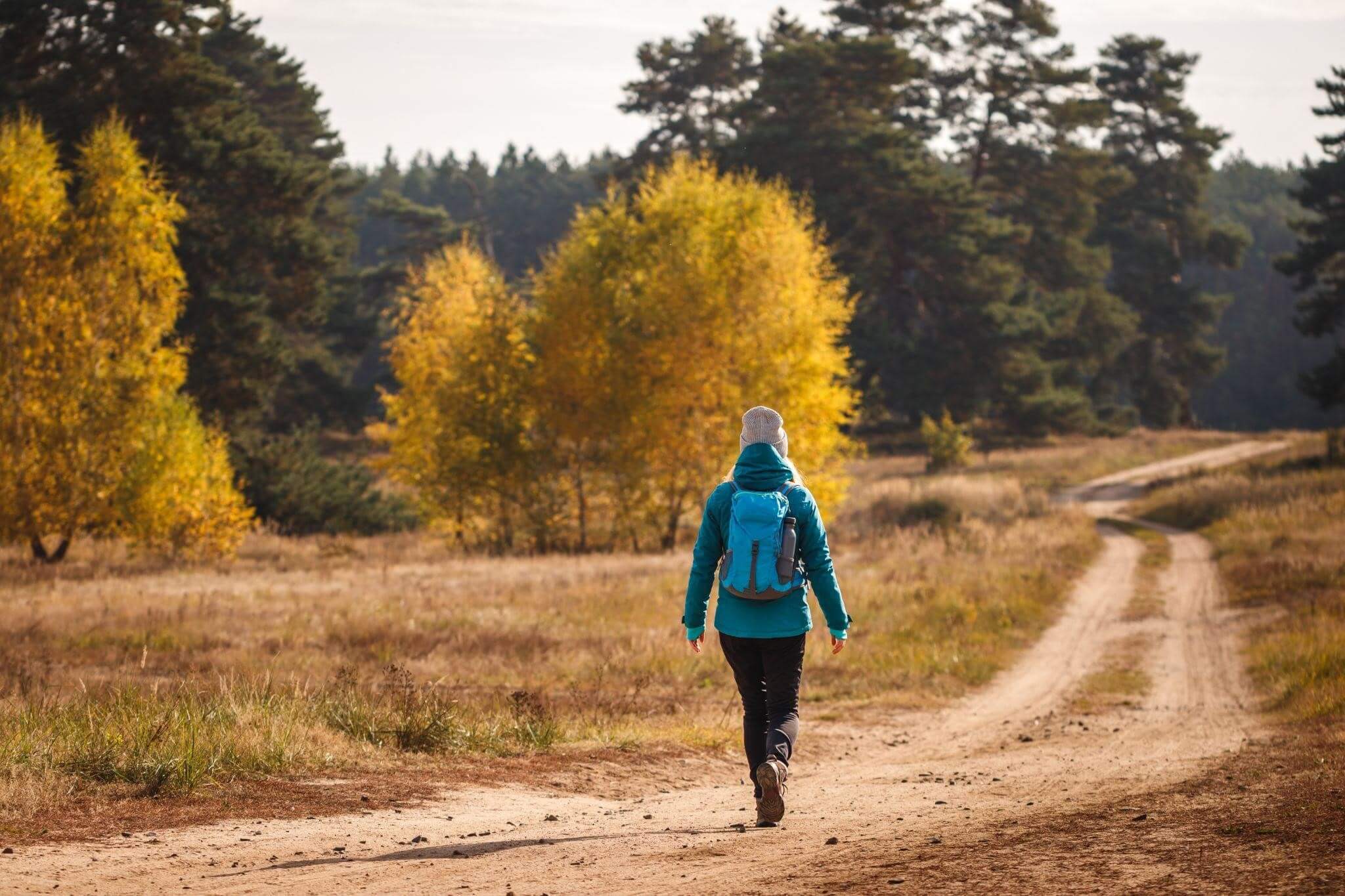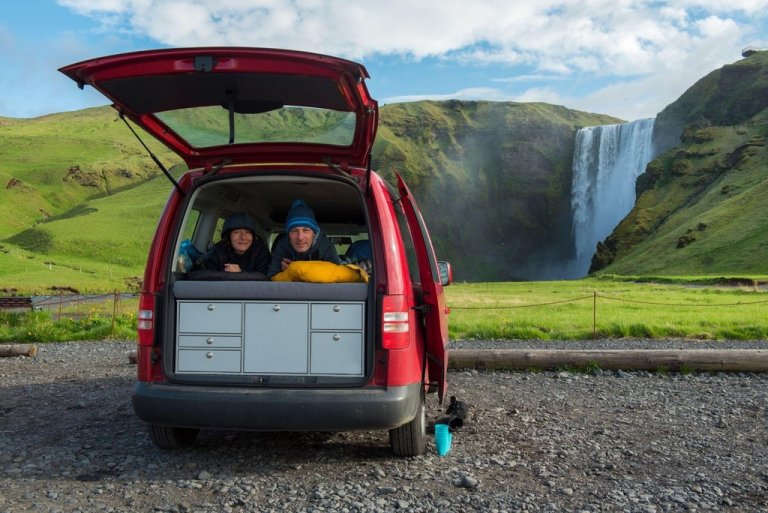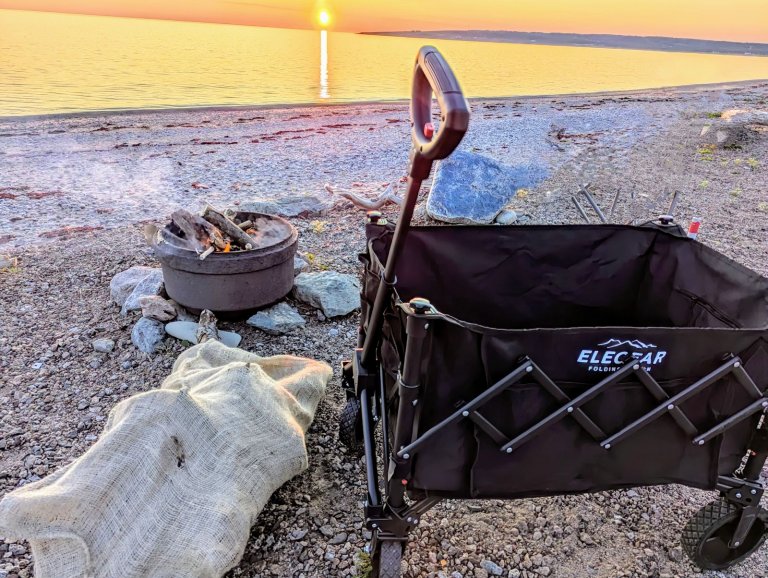
By Ashley Nielsen.
When spending a lot of time outdoors trail running, camping, and hiking, it’s important to stay healthy. While you can try to eat as many nutritious foods as you can while camping, it’s hard to take in as many nutrients and calories as you’re burning during your daily activities. Taking daily vitamins is part of many people’s morning routines, but can be helpful especially when you need extra support due to so much exercise.
Not only do vitamins and supplements provide you with daily support for your immune system, but they can also help you supplement your diet when you’re not getting enough of them through food. There are many types of supplements, but most fall under one of two categories: individual vitamins and multivitamins.
Many people prefer to take a multivitamin because it’s just one pill a day. However, individual supplements can also be beneficial, depending on your health needs. Individual supplements can target specific vitamin deficiencies and different areas of health, whereas multivitamins aim to include as much as they can which may result in certain vitamins being left out.
Since so many options are available, you might even wonder whether individual vitamins are better than multivitamins, especially for those that spend a lot of time outdoors. There is no simple answer, but this article will explain everything you need to know about both types of supplements. Let’s get started.
Multivitamins
 Multivitamins are easy for most because they don’t require much effort or knowledge of dosing. Multivitamins offer the health benefits of many different types of vitamins all in one, helping save you money and avoid confusion. Believe it or not, most people aren’t getting enough vitamins and minerals, so a daily supplement can help with any nutritional deficiencies and prevent symptoms from those deficiencies.
Multivitamins are easy for most because they don’t require much effort or knowledge of dosing. Multivitamins offer the health benefits of many different types of vitamins all in one, helping save you money and avoid confusion. Believe it or not, most people aren’t getting enough vitamins and minerals, so a daily supplement can help with any nutritional deficiencies and prevent symptoms from those deficiencies.
Multivitamins are a well-rounded solution for those that don’t get enough nutrients from their diet and for those who want vitamins that aren’t found in foods, such as vitamin D. However, for those that are spending a ton of time outdoors already, you may not need that extra dose of vitamin D, so a multivitamin may not work out for you.
Unfortunately, even though multivitamins allow you to get your daily dosage of many different types of vitamins, you should still consider your nutritional needs. Multivitamins are great for filling in any dietary gaps, but they aren’t personalized. Everyone has different needs, so taking the same dosage as someone else might not be helpful if you’re trying to improve your health through vitamins.
Additionally, not all multivitamins are created equal; some companies may not include the vitamins and minerals you are missing in your diet in the correct amounts, especially if you’re following specific diets, such as the vegan diet.
Before shopping for a multivitamin, make sure you understand the different forms of vitamins and minerals in the product. Find out based on your diet and type of activity, what kinds of vitamins, minerals, and nutrients you’ll need. For example, if you’re a long-distance hiker, you may search for a multivitamin targeting fish oil omegas, vitamin b12 for energy, and electrolytes.
Individual Vitamins
 Individual vitamins give you complete control over your dosage. If you’re unsure of your exact needs, it’s always best to consult a doctor who can run tests and find out which exact vitamins and minerals you’re deficient in. Then, your doctor will create a plan for you and tell you the correct dosages to take of which vitamins and mineral supplements.
Individual vitamins give you complete control over your dosage. If you’re unsure of your exact needs, it’s always best to consult a doctor who can run tests and find out which exact vitamins and minerals you’re deficient in. Then, your doctor will create a plan for you and tell you the correct dosages to take of which vitamins and mineral supplements.
Doctors typically ask that you take individual vitamins and minerals to allow for proper dosages. An individual vitamin approach can help fill nutritional gaps, just like a multivitamin. However, it can help you more easily achieve sufficient levels of vitamins in your body.
Earlier we mentioned, that it’s best to target your need based on your diet and activity, this is where individual vitamins can help out. Additionally, individual vitamins allow you to target different areas of your health, including the brain, heart, immune system, gut, skin, eye, and even teeth health.
Because individual vitamins allow for a more personalized regimen, they also typically offer better absorption than multivitamins. In addition, taking individual vitamins throughout the day or with meals can help different types of vitamins be absorbed better, which can come in handy when out on the trail.
On the other hand, taking individual vitamins requires a more concrete plan and regime, which can be difficult to follow if you’re busy. If you’re planning a camping trip, plan for what vitamins you’ll be taking with you and in what cases you should take them. Having multiple vitamin bottles with you on your trip can add unnecessary weight and make it difficult for you to remember exactly which supplements to take and when.
Additionally, taking individual vitamins might not be for you if you have a difficult time swallowing pills; instead of swallowing one pill, you’ll have to take many throughout the day. In that case, vitamin chews and gummies can be a helpful alternative. Just make sure to store them somewhere dark and cool, to prevent them from melting since you’ll be outdoors.
When to Use Multivitamins vs. Individual Vitamins
It’s best to use individual vitamins if you have a specific deficiency. For example, while you may suffer vitamin D deficiency during the winter when the sun isn’t out, during your camping trip you may not need it since you’ll be outside. However, you will need vitamin A and the different B vitamins to ensure you’re energized.
Additionally, having a vitamin for inflammation can help as well since you’ll be spending lots of hours on your feet. Individual vitamins are best taken when recommended by your physician and planned accordingly to the types of exercise you’ll be doing. A doctor can help put together a vitamin routine that can help support you in your extended hiking trip.
A multivitamin is typically best for those who want to improve their overall health rather than target a specific health goal or concern. Additionally, multivitamins are easier to remember because you only have to take one pill.
That being said, you should always talk to your doctor before taking a new vitamin to ensure you won’t have any adverse reactions.
Final Thoughts
No matter how healthy your diet is, you may still not be getting enough vitamins and minerals to help your body perform optimally, especially if you’re doing a lot of exercise. There are some nutrients you can’t absorb from food, such as vitamin D, but if you spend lots of time outdoors, you likely won’t need to invest in a vitamin D supplement.
Multivitamins and individual vitamins are both great options if you have a vitamin deficiency and want to improve your health. However, individual vitamins are best for targeting health needs, such as energy, brain, bone, or immune health. Meanwhile, multivitamins are good all-around solutions if you want to improve your health daily. If you plan on going on an extended hiking trip, try finding a supplement that can support your body’s needs through all the physical activities.
Discuss with a doctor the best vitamins and minerals to replenish your body after outdoor activities. Additionally, do you research on the best times to take each supplement. For example, electrolytes are best for during and after physical activity, while B vitamins are best taken before your hike because they provide your body with energy.
Coming up with a game plan for supplying your body with the nutrients it needs will support your body through the exercise you’re doing. If you aren’t sure where to start, consult a doctor and tell them what you’re looking to gain from vitamins and supplements. From there, do your own personal research. Giving your body and mind the nutritional support it needs can mean many more outdoor adventures for you to enjoy in the future.

Ashley Nielsen
Ashley Nielsen earned a B.S. degree in Business Administration Marketing at Point Loma Nazarene University.
She is a contributing writer at 365businesstips.com where she shares knowledge about general business, marketing, lifestyle, or financial tips. During her free time she enjoys being outside, staying active, reading a book, or diving deep into her favorite music.














Leave a Reply